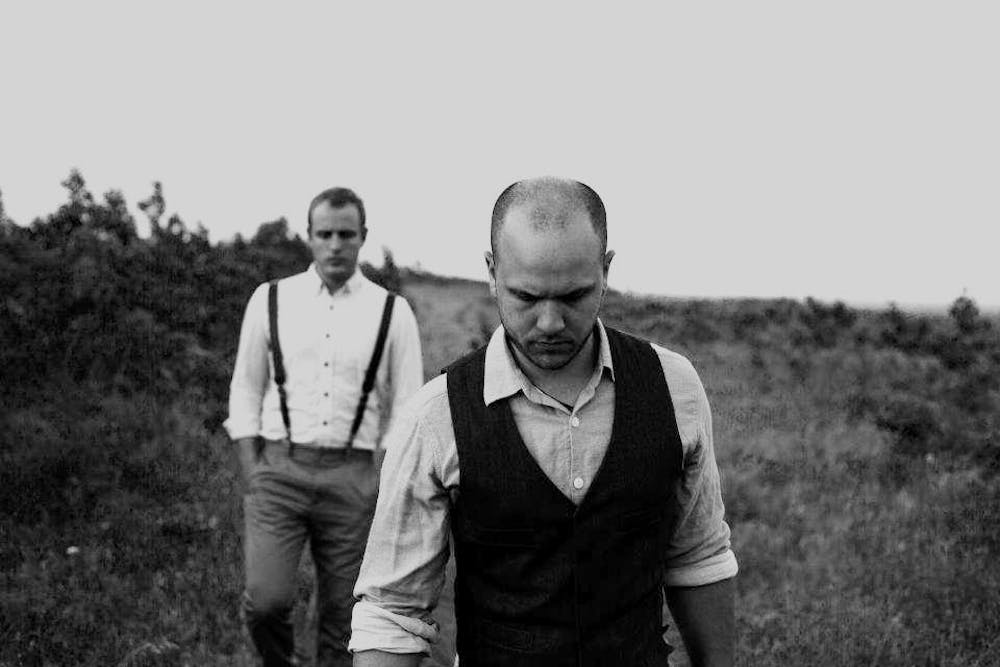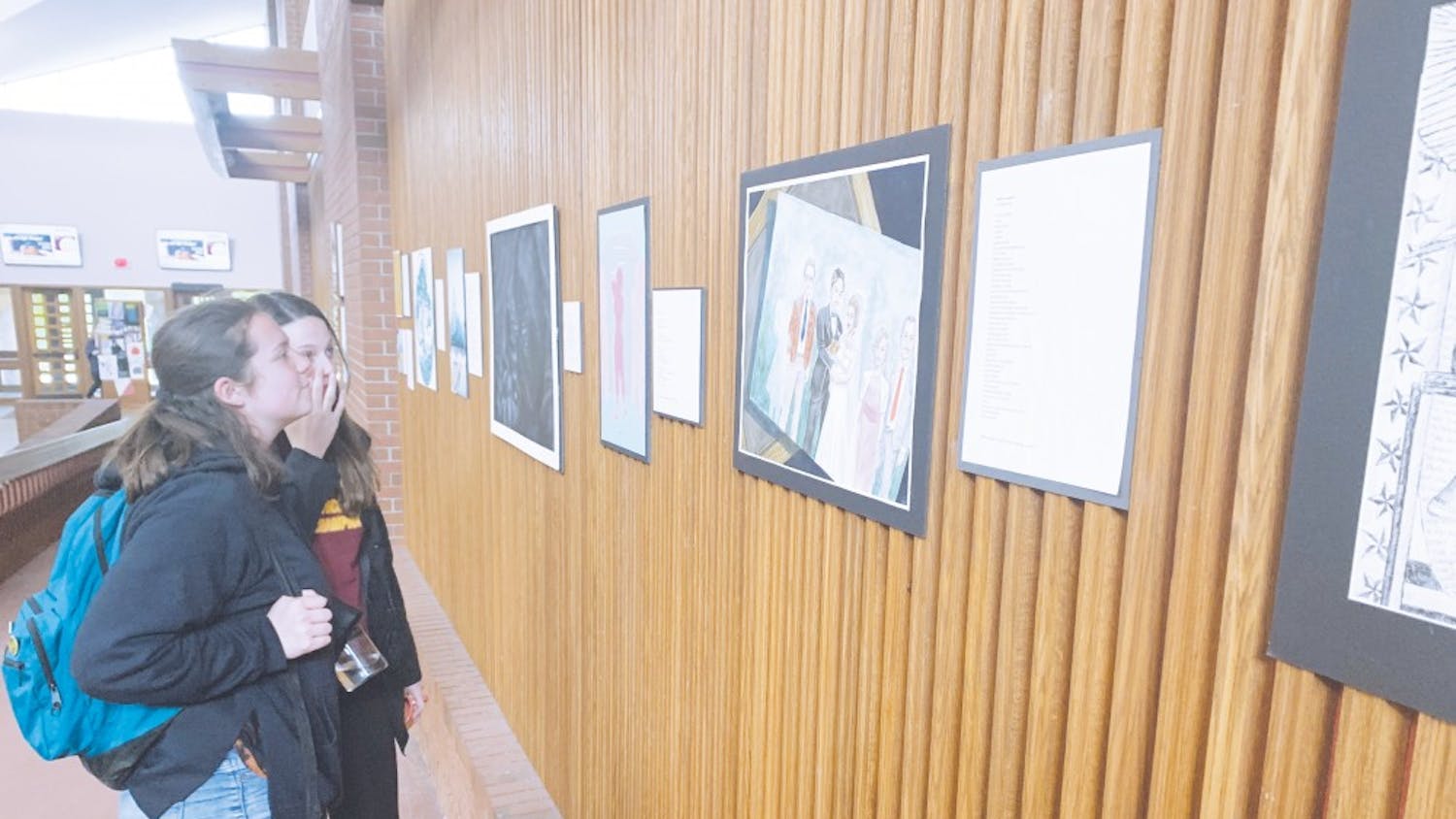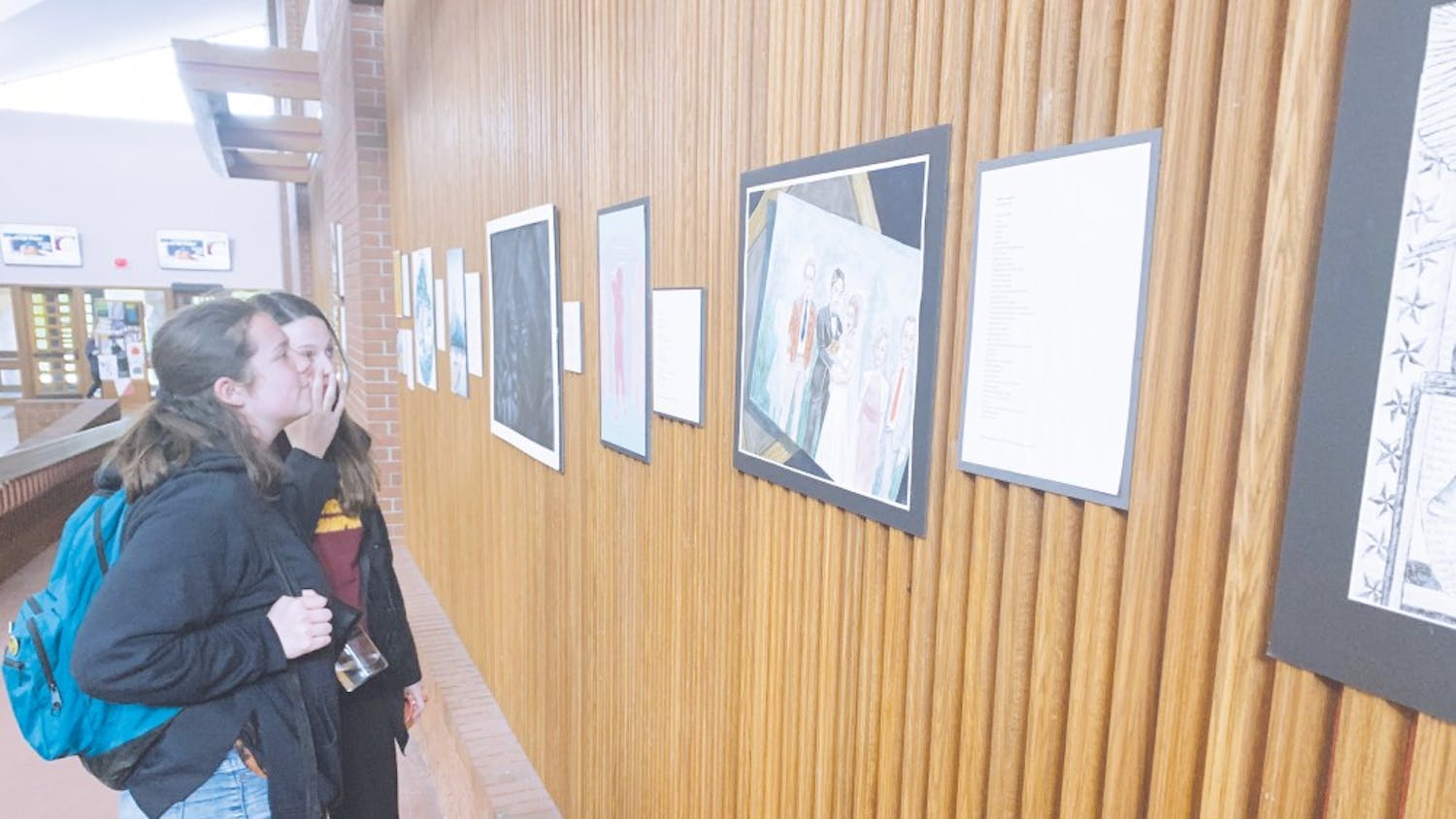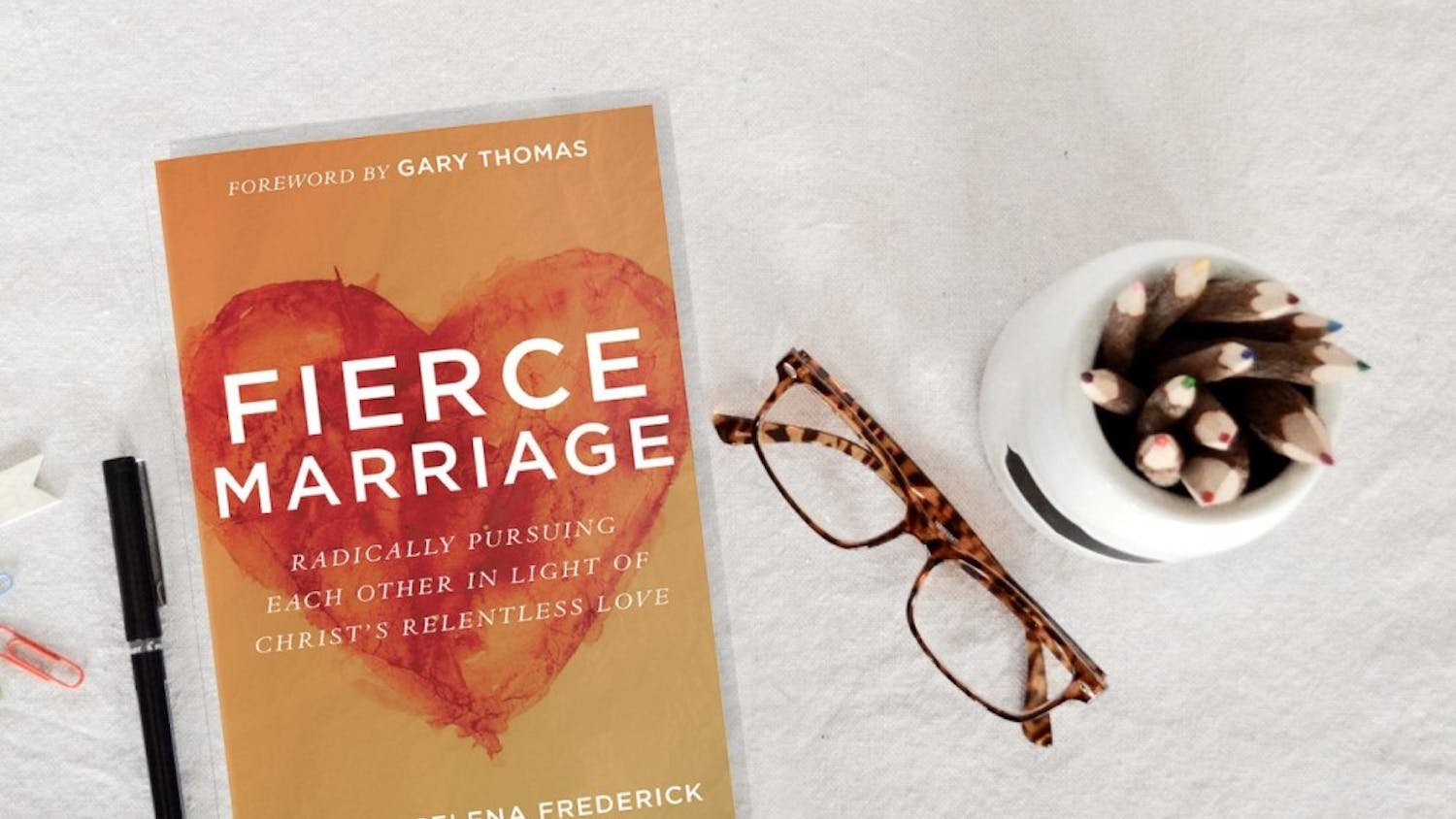David Seaman | Echo
"Brother" (released Feb. 17) isn't your typical worship album. The music doesn't scream from the speakers and doesn't require reciting repetitive lines. Rather, the intricate melodies, mystical lyrics and blending of sounds makes The Brilliance a fresh voice for the Christian music industry. David Gungor and John Arndt created an album that molds traditional liturgical themes of life and death with reconciliation and love for all of God's creations, including our enemies.
If David Gungor's last name seems familiar, it should-his older brother Michael is also a musician in the Christian band Gungor. Around 2010, David left Gungor with John Arndt to form The Brilliance. The Echo chatted with David in a recent phone interview about the origins of the band, art within the church and how themes such as love and forgiveness apply to more than just Christians. This is an edited transcript.
Echo: In the Gungor band you played bass and Arndt played piano. What about now in your new band?
Gungor: We play multiple instruments. We both sing and play guitar, still play bass and piano. Multiple different types of knick-knack instruments.
Echo: How did The Brilliance come about?
Gungor: John and I have been playing music since we were little kids; we grew up together in central Wisconsin. When we were in college we started a pop band called The Brilliance and the Fire. A few years later, after I was in Gungor, I wanted to do a side project outside of the band based around a string quartet. John and I wrote all of the string music. We called ourselves The Brilliance because we wanted to bring over fans of our last band.
Echo: "Brother" is your first major release. Tell me more about the album.
Gungor: Up to this point we had done EPs. This is our first release with a record label. We re-recorded some songs from the old EPs and also recorded some new ones. We put out what we thought was our strongest collection of songs. We recorded all throughout December of this past year and put out the album this month.
Echo: I noticed the album was focused on the mysteriousness of God and used liturgical music. What was the thought process behind this?
Gungor: A lot of the music was written specifically within a liturgical framework. I lead worship at a church in New York City. The overall arc and narrative of the album is one of reconciliation and forgiveness.
It starts off with "Brother," formed around the idea of how we love our enemy. There's a simple phrase in the song that states "when I look into the face of my enemy I see my brother." In New York, at the time we were playing around with that, there was a lot of tension from Ferguson and Eric Garner. I went over to Israel and met with Palestinians and Jews who were working for peace. It was the kind of song that resonated with us. The second song "Now and at the Hour" morphed into a confession from an older song from one of our EPs. We sing the song at my church.
From there we have "Yahweh," which again focuses on my trip to Israel. It looks at the tension of Christians and Muslims and Jews who all worship the God of Abraham. It looks at God's peace and shalom. The next song is "Does Your Heart Break," which was on an EP but we rewrote while on tour. Protests were happening in New York while I was on tour. One night I spontaneously changed the lyric to what it is now. "Love Remains" is a song I sing at my church; it came on at the last minute.
"Breathe" was the first-ever Brilliance song. It was written for Pentecost and wanted it to be on our first international release because of its significance. "Dust We Are and Shall Return" is based around Ash Wednesday; I sing it at my church and it deals with the theme of death. "Prayers of the People" is again a song I sing at my church, but the album version is different because there's space to pray. It's shorter on the album but during Sundays we have prayers during the spaces.
"Make Us One" is a prayer based on John 17. It was also inspired by a scientific thought by Neil deGrasse Tyson--John and I are both science fans--talking about the universe and how it was created. It has a lot of different meanings depending on who hears it, but "Make Us One" essentially is the evolution of the band. Everything we wrote is intentional and minimalistic, and musically it feels like its evolving.
Usually when we do albums we have to do it on a tight budget and very quickly. We would be writing things on the fly, but I would have to do eight vocals in like five hours. Even though we only made this album in about a month there was a lot of time for creative input. It came about from us being able to say "this is our first piece of art."
Echo: Your previous EPs were acoustic. What was it like going from acoustic to a big studio setting?
Gungor: For "Brother" we were able to put something out that felt more like a band instead of a couple of guys creating in a studio as fast as they could. (It was) being able to collaborate with people and evolve the sound that felt more appropriate for where we wanted to go as a band.
Echo: How would you like your music to be used in churches?
Gungor: I write music that is liturgical in nature, but depending on what the song is for it's not always meant to be sung with a congregation. It's more as an artistic form that can be used within the liturgy. For my church every week we have time for prayers of the people and time for concession. There are moments in space for creativity and prayer, but that's not like every church. I'm not trying to write songs for the church. We write music that inspires us, and within that inspiration it's through the framework of the Christian narrative. Art anytime it's used within the church is used to inspire the Christian imagination. Our hope would be that our music inspires that imagination and that churches can use that.
Echo: You're writing for a Christian audience. How would you want your music to be viewed by a non-believing audience searching for something?
Gungor: There are certain things that transcend words like "Christian." A theme like forgiveness . . . it's not only Christians who need to forgive. Most of the themes are found in the Christian narrative but can also transcend. If a person enjoys the music and are drawn to it by some form of beauty of wonder, then hopefully it will inspire them to dig into what that theme is.
The Christian theme of love and hope is overarching throughout the record. Anytime anyone experiences any kind of beauty it can transcend just terms of "Christian music." Even though this is the most Christian music we make by far because it's liturgical--art written and based around the church calendar--it is also art. I can easily show someone who is not a Christian the music and feel like they can get it.
The only song I feel like (people) would be like "huh" would be "Prayers of the People." But from there we can talk about prayer. Most of the other songs have themes any human can deal with. Whether doubt or death or forgiveness or hope, every one of those themes is a theme of life.
Echo: What is your view on the Christian music industry today?
Gungor: I think it depends on what the goal of the music is. If your goal is to get people to sing, there's a lot of great music that is anthem-y and have great melodies. These are the songs the masses can get very quickly. I think that's a good thing. A lot of music is good at reflecting culture. There are some great artists that are very talented. The hard thing is we get tired of reflecting culture and not necessarily lead a path in a certain area. Take classical music as an example. In the past the church commissioned great classical music and great art. If you go to some Christian churches you can find the most beautiful art in the world. But at a certain point they stopped commissioning things.
For specific music being made for church, there's great music and very repetitive music. It can lack imagination both in a lyrical skill though theology and poetry or it can lack inspiration from imagination musically. Part of the problem is . . . the good thing of playing music everybody can sing right away also means it has to be simple enough for everyone to sing right away. Sometimes that can make melodies predictable. Every one of the songs on "Brother" is different; there's repetitiveness in our songs, there's chaos in our songs. I don't want to dog Christian music because it's what I grew up on. But at the same time I can feel the tension as a songwriter, feeling like you're boxed into songs only people can sing or music only in a certain context.
As a songwriter trying to make Christian art you have to constantly be saying "what is the scope I want this to be played in? What is the venue or narrative?" For our music we want people to sit and reflect and be. That doesn't work in the context of a megachurch. It's different context for different things.





